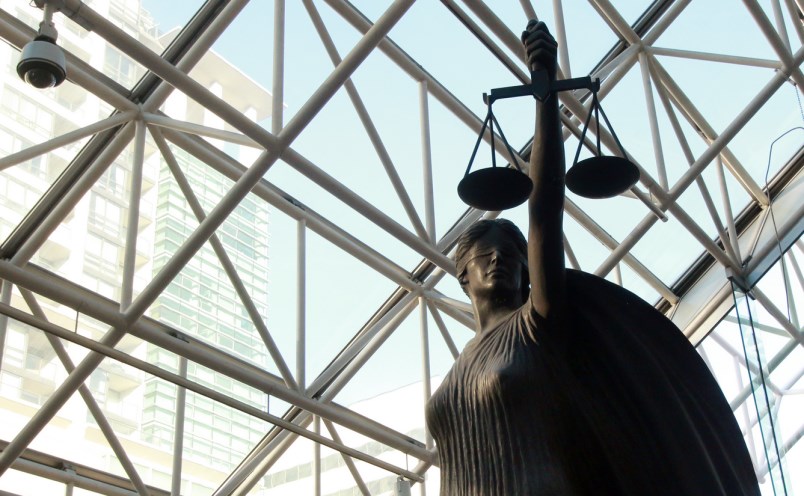Three Fraser Valley churches racked up $299,900 worth of tickets while defying public health orders, only to lose their constitutional challenge to those orders in B.C. Supreme Court. Chief Justice Christopher Hinkson referred to the tally in a judgment late last week that ruled provincial health officer Dr. Bonnie Henry’s restrictions on congregating for religious services are lawful.
The suit was brought by three Fraser Valley churches and a Dawson Creek man, Alain Beaudoin, who describes himself as an “organizer for Stand Against Tyranny Freedom Rallies.”
In one narrow instance, a public health order regarding public protests that was in effect for three months violated his rights, the justice ruled. The churches took numerous safety precautions last year as COVID-19 spread through B.C. But they remained open for in-person gatherings when those are prohibited by Henry’s orders.
Hinkson said the churches were discouraged in various ways from holding in-person services by members of the RCMP.
At least 11 tickets totaling $299,900 were issued for contravening Henry’s orders, he wrote.
The churches earlier this year challenged the public health orders, arguing that they forbid people “from the free exercise of the fundamental right to engage in sacred religious practices in a communal and collective setting.”
“In my view, this assertion is greatly overstated,” said the chief justice.
Churches can still hold services, but in limited ways. The restrictions do infringe on people’s freedom of worship and right of assembly, said the court decision. But those infringements are permissible constitutionally given the pandemic.
The churches conceded that public health is important enough to warrant limits on charter rights. But they asked for a verdict that Henry’s measures were arbitrary, irrational and disproportionate … “therefore not reasonable limits demonstrably justified in a free and democratic society.”
Hinkson, however, sided with government lawyers representing Henry’s office. “The question is not whether Dr. Henry reached the correct balance, but whether, on the information available to her, she acted within the reasonable range of alternatives.”
He ruled Henry’s orders were reasonable and proportional responses to the acceleration of transmission, and were issued after consultation.
One of the central points made by the churches was the apparent disparity between religious services and other group activities.
Liberal MLA Mike de Jong (Abbotsford West) made that point in a January letter to Attorney General David Eby that passed on concerns from his constituents.
He wrote that “a pilates class can be held in a church, but the moment someone reads out loud from a Bible, Quran, Guru Granth Sahib or other holy book, it becomes prohibited behaviour.
“A band can perform songs at a hotel lounge … but if it performs religious songs, that becomes prohibited behaviour.
“I am unable to explain to people how it is that a hundred people can socialize at their own tables … at a restaurant, shopping mall or food court, but that same activity would be prohibited at a church,” wrote de Jong.
A similar argument was made in court — that the health risks in a religious gathering are identical to those in a school, gym, support group or restaurant, but religious gatherings are the only ones banned.
The justice said it’s a simplistic argument that fails to account for distinguishing factors that Henry cited, like the age of participants, the intimate setting, communal singing or chanting and the apparent lack of masks.
He said the fact that some religious activities are restricted and secular activities are not isn’t evidence of arbitrariness. “There needs to be a comparison of comparables and a demonstration there is no rational basis. That is not present here.”
Hinkson concluded that the orders have a significant impact on the churchgoers’ rights, but “the benefits to the objectives are even more so.”
Henry has hinted that the restrictions on religious gatherings would be eased in time for the various spring celebrations. She said Monday they’re putting final touches on “amending the variances for outdoor religious gatherings.”
The decision makes clear she has the full authority to issue or change orders as she sees fit.
Just So You Know: Officials have issued 988 tickets to mid-March, with a face value of $700,275. Fines paid to date total just $84,171. Another 118 tickets have been issued for federal quarantine violations, worth $144,137. Just $15,250 has been paid.
The outstanding ones are disputed or still in process.



